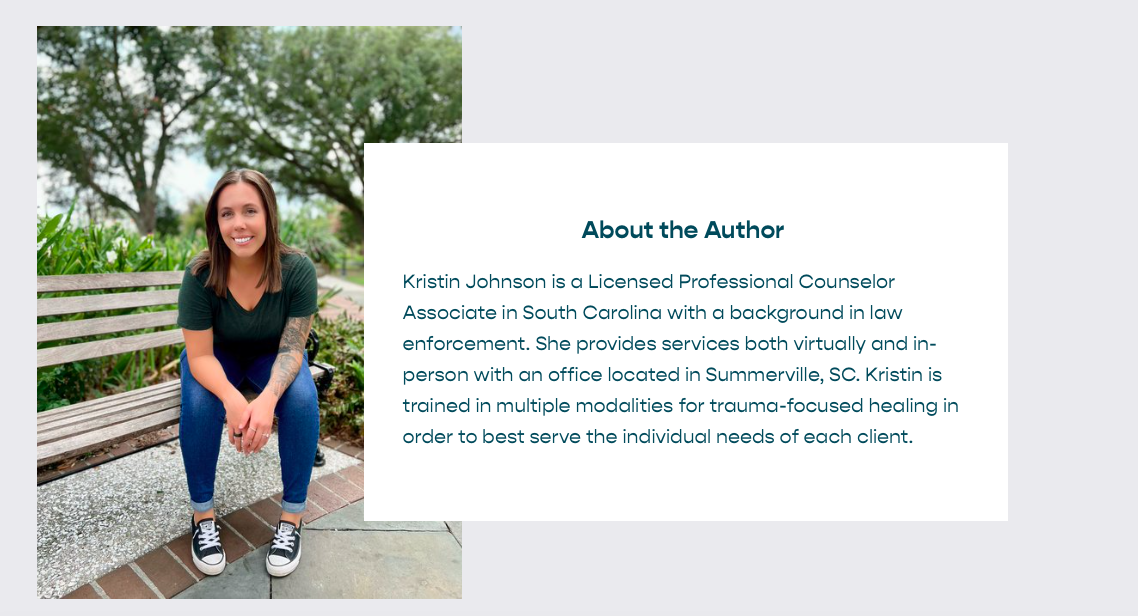The Impact of Cumulative Stress on First Responders and How to Manage It
First responders are some of the most resilient people out there. You have to be. You push through exhaustion, trauma, and chaos—because that’s the job. But even the strongest people aren’t invincible. Cumulative stress is real, and it adds up over time. You don’t have to experience one “big” traumatic event for the weight of the job to take its toll. The long hours, repeated exposure to high-stress situations, lack of sleep, and emotional suppression can quietly chip away at your mental and physical health.
If you’ve been feeling burned out, detached, irritable, or just not yourself, it’s not a personal failure, it’s a sign that your nervous system is overloaded. And if you don’t address it, cumulative stress can lead to serious mental health struggles, relationship issues, and even physical health problems.
What Is Cumulative Stress?
Cumulative stress is the build-up of repeated exposure to high-stress situations over time. Unlike acute stress (which happens suddenly, like during a life-threatening event), cumulative stress is a slow burn. It’s the daily grind of:
Seeing human suffering and tragedy regularly
High-pressure situations with little recovery time
Feeling responsible for saving lives, often without control over the outcome
The emotional weight of witnessing trauma, death, and devastation
Working long shifts with poor sleep, high adrenaline levels, and hyper-vigilance
At first, you power through it. That’s what you’ve been trained to do. But over time, your body and mind start to absorb the stress, even if you don’t realize it.
The Impact of Cumulative Stress on First Responders
When stress builds up over weeks, months, or years, it can lead to:
1. Emotional Exhaustion & Burnout
Feeling detached or emotionally numb
Losing motivation or questioning why you do the job
Becoming cynical or disengaged at work and home
2. Increased Anxiety & Hypervigilance
Always feeling on edge, even off-duty
Difficulty relaxing or "turning off" the work mindset
Increased irritability or frustration over small things
3. Sleep Problems & Chronic Fatigue
Trouble falling or staying asleep
Nightmares or racing thoughts at night
Constant exhaustion, even after sleeping
4. Physical Health Issues
Chronic headaches, muscle tension, or stomach problems
Increased blood pressure or heart issues
Higher risk of substance use to cope with stress
5. Relationship Struggles
Becoming withdrawn from family and friends
Short temper, irritability, or emotional disconnect
Avoiding conversations about work or feelings
Cumulative stress doesn’t just impact your job, it affects every part of your life. And if left unaddressed, it can lead to things like PTSD, depression, anxiety disorders, and even suicidal thoughts.
How to Manage Cumulative Stress as a First Responder
You can’t eliminate stress from the job, but you can manage how it affects you. Here’s how:
1. Recognize the Warning Signs
If you’re constantly feeling exhausted, irritable, or emotionally shut down, don’t ignore it. The sooner you recognize cumulative stress, the easier it is to prevent burnout or more serious mental health struggles. Spend some time thinking about what you notice about yourself when you're stressed, because it looks different for everyone.
2. Prioritize Quality Sleep
Yes, sleep is hard to come by in this line of work. You may have limited control over your sleep schedule but focus on controlling the aspects that are within your control.
Stick to a consistent sleep schedule on your days off
Limit caffeine and screen time before bed
Use blackout curtains or white noise to improve sleep quality
3. Talk About It (Even If You Don’t Want To)
First responders are notorious for bottling things up. But burying stress doesn’t make it disappear—it just makes it explode later. Talking to a therapist, peer support, or even a trusted friend can help release some of the weight.
4. Get Moving
Physical activity helps regulate stress hormones. Whether it’s lifting weights, running, or hitting a punching bag—move your body. It’s one of the best ways to process stress and prevent it from getting stuck. And no…..the foot pursuit you got in last shift doesn't count.
5. Set Boundaries Between Work and Home
It’s easy to bring the job home with you, but your personal life needs to be a safe space. Set limits like:
Not checking work emails/messages on your day off
Avoiding detailed work talk at the dinner table
Creating a post-shift routine to mentally "clock out" (develop healthy ways to shift from work to home).
6. Find a Healthy Outlet
Hobbies, creative outlets, or even just time in nature can help reset your nervous system. Find something outside of work that helps you decompress.
7. Seek Professional Support Before You Hit a Breaking Point
You don’t need to wait until you’re falling apart to get help. Therapy isn’t about weakness—it’s about maintaining strength. Talking to someone who understands first responder stress can help you develop coping strategies that actually work.
You Don’t Have to Carry This Alone
Cumulative stress doesn’t mean you’re broken. It doesn’t mean you’re not cut out for the job. It just means you’re human—and even the strongest people need support. If you’re feeling the weight of the job more than usual, therapy can help you process, reset, and regain control before stress takes over your life.
Schedule a free phone consultation today, and let’s talk about how to get you back to feeling like yourself again.


